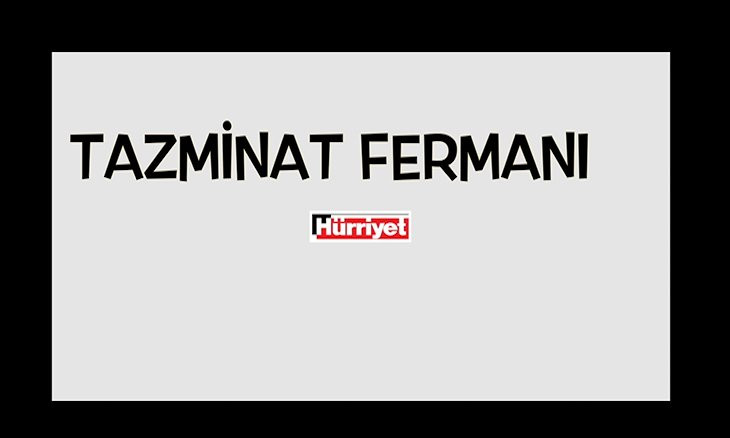'Turkish daily Hürriyet selling ads that appear as news'
Turkish daily Hürriyet has been subject to criticism over a letter suggesting that the newspaper has been publishing advertorials without placing the disclaimer of 'this is an advertisement.' The newspaper's editor-in-chief Ahmet Hakan has refuted the allegations, saying the letter in question was not printed by Hürriyet itself, but an ad agency, which the newspaper is now reconsidering working with.
Haci Bişkin / DUVAR
The mainstream Turkish daily Hürriyet has been subject to criticism this week when the owner of a prominent publishing house tweeted photos of a notice advertising advertorials in the paper, where private companies could pay to have an advertisement that would appear as if it was a news report.
Can Öz, the owner of the prominent Can Publishing House, tweeted a photo of the image, which featured the logo of the newspaper, and offered companies the opportunity to pay certain amounts of money to be featured in a section entitled “Turkey's Top Employers” that is slated to be published in Hürriyet on April 30.
Şimdi gelen emaile bak.
— Can Öz (@ccanozz) April 20, 2020
Hürriyet Gazetesi'nde "Türkiye'nin en iyi işverenleri" arasında anılmak için parayla satılan röportaj tarifesi. Buna para veren ne olsun. Üstelik "Bu bir ilandır" ibaresi de olmayacakmış. Pes. pic.twitter.com/O64yxF8GeJ
The notice also made it clear that the advertorials would not feature the disclaimer “this is an advertisement,” thus making it appear as if they were news stories produced by the paper. It listed the prices as being 45-55 pct. cheaper than the normal rate for advertorials, as companies could purchase a quarter page for 4500 TL plus tax, while a full page was listed as 18,000 TL plus tax.
The notice was not printed by Hürriyet itself but by an ad agency, the owner of which responded to Öz on Twitter.
“First of all, this announcement has nothing to do with Hürriyet. It is a special initiative from our agency. Also, all of the advertorials will be published with the disclaimer that they are ads,” said reelsektor.com owner Baran Adanır.
This practice is not unique to Hürriyet, said the paper's former ombudsman Faruk Bildirici, who wrote a column criticizing the practice before he was let go by the paper, which was once Turkey's top-selling newspaper, owned by the Doğan Holding group before being sold to Demirören Holding in 2018. The Demirören family is known for its close relationship with the ruling Justice and Development Party (AKP).
“In journalism, advertisements need to be completely separate from news content. There should be a wall between journalistic content and advertising/promotional texts, because an advertisement directs a reader toward purchasing a product while the fundamental purpose of providing news to a reader is solely to convey the truth,” Bildirici said.
 Lawsuit filed for the reinstatement of 46 Hürriyet journalists
Lawsuit filed for the reinstatement of 46 Hürriyet journalists“Lately there has been a decline in advertisements in newspapers and traditional media. They are trying to cover this with alternative strategies. Unfortunately, the result is an attempt to combine advertising-promotion with journalism. Interviews are conducted for money, advertising texts are disguised. Advertising information is being mixed into articles and news reports,” Bildirici said, adding that he was curious if in fact the “Turkey's Top Employers” segment would be published in Hürriyet on April 30.
 Fired Hürriyet journalists prepare video clip, demand their severance pay
Fired Hürriyet journalists prepare video clip, demand their severance payMeanwhile, Hürriyet's editor-in-chief Ahmet Hakan has refuted the allegations that advertorials are being published in the newspaper without the disclaimer of "this is an advertisement."
"An agency with which Hürriyet is working for over a year in order to reach to small- and medium-size enterprises, has written a letter to a couple of small enterprises. Hürriyet never publishes an advertiser's work related to advertisement without putting the expression of 'THIS IS AN AN ADVERTISEMENT.' The letter in question has no place in action," Hakan wrote in his daily column.
Hakan also said that the newspaper is now reconsidering working with the agency in question.
